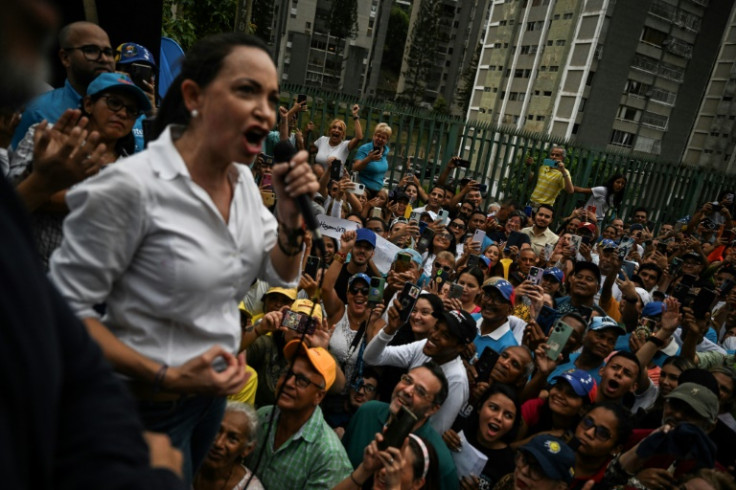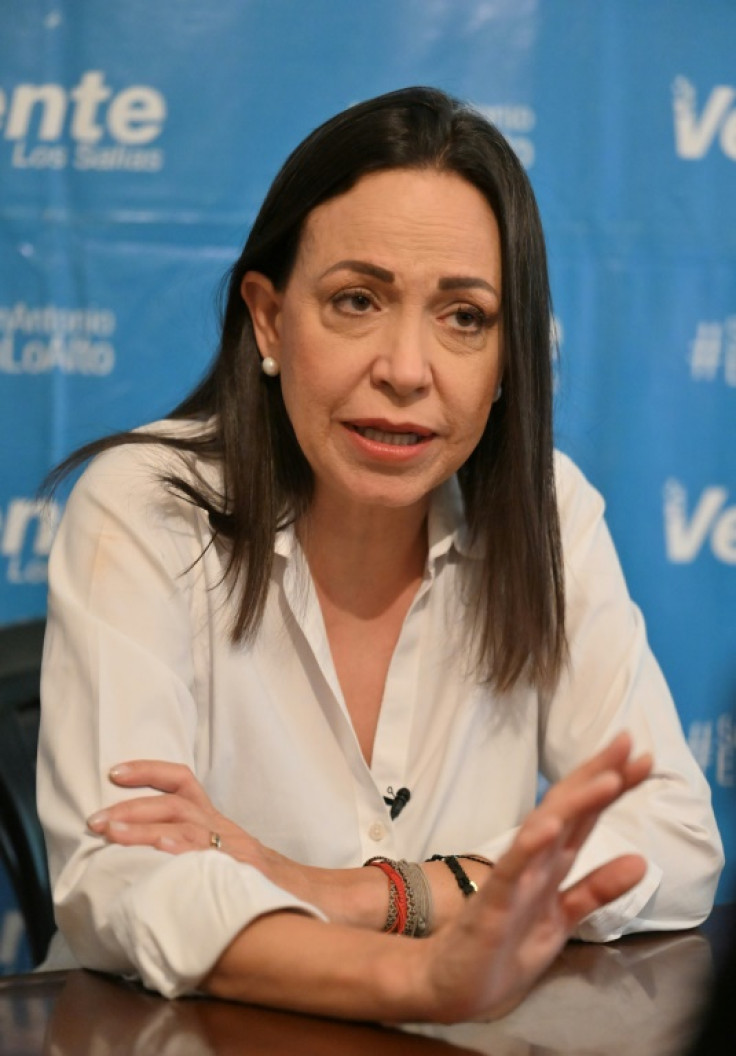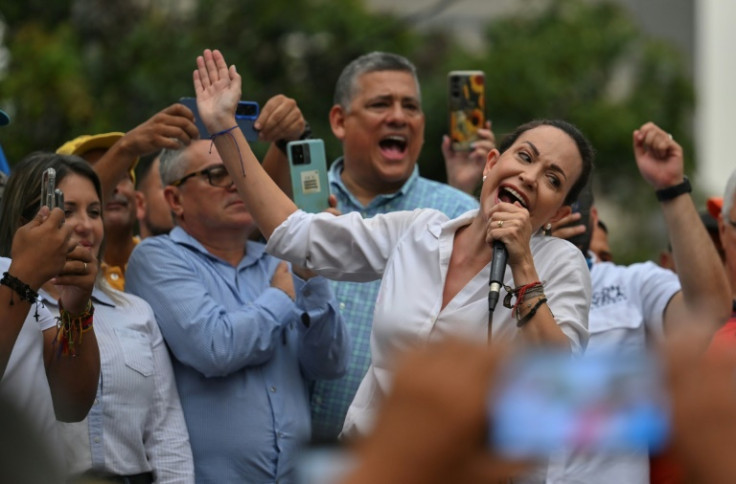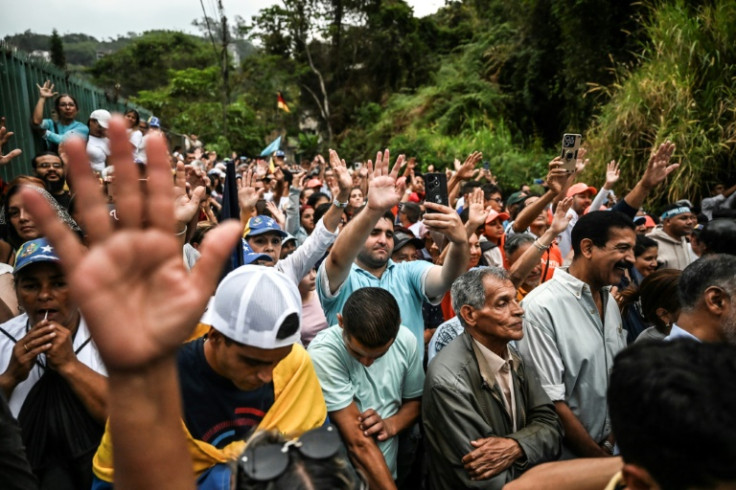
She has been banned from taking part in the July presidential election, but Venezuelan opposition leader Maria Corina Machado keeps campaigning, refusing to settle for a backup plan.
"We always fight for Plan A. I am Plan A," the 56-year-old told AFP in an interview before a campaign rally in San Antonio de Los Altos, just outside the capital Caracas.
"Either we bow our heads or we fight for our rights, for justice. We have time, the people are determined, Venezuelans want to vote."
Hundreds of people gathered on a narrow street to listen to the woman who swept opposition primaries with more than 90 percent of the vote in October last year.
Since then, Machado has been banned from public office for 15 years by courts loyal to President Nicolas Maduro.
She tried to register a proxy, planning to keep fighting from the sidelines and eventually step in and run in the July 28 election at the last minute, but electoral authorities blocked that candidate.
In the end, the opposition managed to register a different, little-known candidate after the deadline, the former ambassador Edmundo Gonzalez Urrutia, who is also seen as a placeholder.
"We have until ten days before the elections to replace a candidate," Machado said, adding she hoped to "move forward in negotiations in the coming days."
"If there is one thing I have learned, it is that in Venezuela we make the impossible possible.
Machado said she would never "betray the mandate of almost three million Venezuelans" who voted for her in the primary.
"It is not possible for Maduro to decide who he accepts as a candidate."
While Machado clings to hope, electoral authorities have repeatedly said only the 13 candidates currently registered will be allowed to participate.
Many of them are considered allies of Maduro.
Machado refused to say which candidate she would support as a last resort.
She also sought to distance herself from the last-minute candidacy of Governor Manuel Rosales, a member of her coalition who said he signed up to prevent the opposition from being completely left out.
Many in the opposition consider the move a betrayal, and see the fact that he was accepted as a sign that he is a palatable rival in Maduro's eyes.
"It is a public and notorious fact" that the opposition does not trust him, Machado said, without mentioning Rosales by name.
She has ruled out the idea of a boycott, as used by opposition politicians in the 2018 election, the results of which many countries refused to accept.
"The regime wants to impose abstention with fear, with candidates that are not legitimate or who do not have the support of Venezuelan society," said Machado.
"Elections in which... the regime imposes the candidate are obviously not clean and free elections," she said.
Machado urged international observers "to come and tell the truth, and not bow your head to the regime" and allow elections that they would not accept in their own countries.
"No double standard," she said.
Machado said the country was experiencing a "very complex" period, accusing the government of "violating all elements" of a deal reached in Barbados last year to hold a free and fair election.
That deal led the United States to suspend some sanctions on Venezuela's oil industry, which were snapped back Wednesday over continued political repression.
"I have relatives, collaborators in prison, in exile, who have been persecuted," said Machado.
Seven members of her campaign team have been arrested in recent weeks and six others have taken refuge in the Argentine embassy.
There are currently 269 political prisoners in Venezuela, according to the NGO Foro Penal.
What is happening "goes much further than an electoral struggle. This is a civic movement that comes from the heart of the country. It is not possible to stop it," Machado said.
"The threats are brutal against me, my entourage and my family. But we will keep going until the end."










